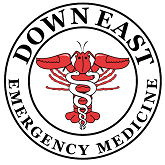Journal Club - Physician Depression and Suicide
/Background
Suicide is disturbingly prevalent among patients we care for in the Emergency Department. It is unfortunately also common among physicians. Most estimates suggest that approximately 400 physicians die by suicide annually. Physicians also have a higher rate of suicide than the general population. Male physicians have a 40% increased risk of suicide compared to their age-matched peers and female physicians have a 130% increased risk. We chose this topic for Journal Club with the goals to raise awareness around these shocking statistics, discuss etiologies behind these high rates of suicide, and to normalize the discussion around physician mental health.
While there is no clear answer to why physicians have these higher rates of suicidality, one proposed theory is that physicians are reluctant to seek help when they face mental health challenges. The Shanafelt article sought to evaluate whether physicians would in fact request support in the face of depression. It has also been suggested that fear of licensing retribution is a factor in physicians being hesitant to receive mental health services. The Dyrbye article looked at questions asked by state licensing boards that may contribute to this issue. Lastly, the Guille article sought to address the gender discrepancy inherent in the increased risk of suicide in female, as opposed to male physicians to see if work-family conflict may contribute to this.
Articles reviewed
Shanafelt et al. Suicidal Ideation and Attitudes Regarding Help Seeking in US Physicians Relative to the US Working Population. Mayo Clin Proc. August 2021; 96(8): 2067-2080.[Pubmed]
Dyrbye et al. Medical Licensure Questions and Physician Reluctance to Seek Care for Mental Health Conditions. Mayo Clin Proc. October 2017; 92 (10): 1486-1493.[Pubmed]
Guille et al. Work-Family Conflict and the Sex Difference in Depression Among Training Physicians. JAMA Internal Medicine. December 2017, Volume 177, Number 12.[Pubmed]
Background articles
SHANAFELT ET AL
In this cross sectional analysis, authors strove to evaluate why physicians commit suicide at a higher rate than the general US working population. Using a physician survey and national survey, they measured the prevalence of suicidal ideation (SI) in the past 12 months and attitudes regarding seeking help, and looked for factors that may affect SI. Their primary hypothesis was that high self-valuation scores would modify the risk of SI. Their results showed that being young, female, or having made a self-perceived medical error in the past 3 months had the highest association with SI. Being married or having children was protective. There was no association between specialty, call schedule, recent malpractice lawsuit or practice setting. Notably, fewer physicians said yes to seeking help if they had SI in the past year. Regarding the hypothesis, they found a statistically significant relationship between higher quartile of self-valuation scores and lower rates of SI. In their discussion, authors conclude that self-valuation has a strong mental health protective effect and may play a key role in a physician’s longevity. Additionally, they pontificate that while physicians may conceptually be more open to seeking care for mental health disorders than the general population, when distress occurs there may be a larger barrier from stigma and fear of license retaliation. It is important to emphasize and exemplify self-valuation from an early stage in medical training, and to continue addressing barriers to physicians seeking help to work towards decreasing physician suicide.
Bottom Line: Physicians report a willingness to seek help for mental health challenges when this is an abstract concept, but they may be unlikely to do so when actually facing a mental health crisis.
DYRBYE ET AL
This survey study examined whether medical licensure application questions affect physician reluctance to seek care for mental health conditions.
A convenience sample of 5829 non-retired US physicians were recruited. Participants completed a survey in which they provided demographic information and answered the question “If you were to need medical help for treatment of depression, alcohol/substance use, or other mental health problem, would concerns about the repercussions on your medical licensure make you reluctant to seek formal medical care?” Initial and renewal medical licensure application forms were collected from 50 states and the District of Columbia. Applications were coded as “consistent” with Federation of State Medical Boards (FSBM) if they inquired only about current impairment from a mental health condition or did not ask about mental health conditions. All other applications were coded as “not consistent.”
Across all states, 40% of physicians reported that they would be reluctant to seek formal medical care for treatment of a mental health condition because of concerns about repercussions to their medical licensure. In states in which initial and renewal applications were designated as consistent, only 37% of physicians expressed reluctance to seek care. Whereas in states where applications were designated as not consistent, 41-43% of physicians expressed reluctance to seek care. Physicians working in states in which applications were not consistent with FSMB guidelines were 21% to 22% more likely to be reluctant to seek help due to concern about repercussions to their medical licensure.
Bottom line: This survey study suggests that medical licensure application questions affect physician reluctance to seek care for mental health problems.
GUILLE ET AL
This study aimed to look at whether depression disproportionately affects female physicians compared to male physicians during their intern year, and if work-family conflict impacts the sex difference in depressive symptoms in interns. It was funded by the National Institute on Drug Abuse, National Institute of Mental Health, National Center for Advancing Translational Sciences. Emails were sent to anyone in the 2015 to 2016 residency match, with 3121 participants matching into 23 medical and surgical specialties at 341 US institutions. Those who agreed to participate received an email 2 weeks prior to residency and 6 months after the start of residency where they filled out the PHQ-9 and Work Family Conflict Scale. Multiple statistical analyses were used as well as 2 different regression models. The results showed that in regards to the first model of depression score changes, men and women had similar depressive scores prior to intern year, but after intern year, men’s depressive scores increased 93% and women’s depressive scores increased 115% - with women’s change statistically significantly higher than men’s. For the work-family conflict change model, prior to intern year there were no significant differences between work-family conflict scores between men and women. Six months into intern year, however, women had higher work-family conflict scores compared to men, with an increase in their score directly correlated to an increase in PHQ-9 score. Additionally, when both women and men increased the same amount in their work-family conflict scores, women had a statistically significant increase in their PHQ-9 scores compared to men. This study shows that depressive symptoms significantly increase during the intern year - most notably affecting women more, and specifically women’s depressive symptoms are more greatly affected by work-family conflict.
Bottom Line: Female physicians experience a greater increase in depression scores during medical training. Work-family conflict is also more prevalent for female physicians but it is unclear if there is a causative link between these findings.
The incidence of physician suicide and increased risk compared to their peers is alarming and require significant public health attention and discussion. While this Journal Club did not aim to address all the factors that may be behind these high rates, we did discuss the roles played by willingness to seek mental health treatment, self-valuation, medical licensing questions, gender and work-family conflict. More research on this topic clearly needs to be done, but it is also essential that physicians begin openly discussing this topic, support their peers who are struggling with mental health issues and recognize the importance of asking for help when they themselves are suffering.
Download article summaries
Want to learn more about physican depression and suicide? check out Dr. Macvane’s presentation below
Written by Casey Z. MacVane, MD, MPH, Elizabeth Albert, MD, Rachel Godfred, MD, Tamar Stokelman, MD and Heidi Roche, MD
Edited and Posted by Jeffrey A. Holmes, MD















